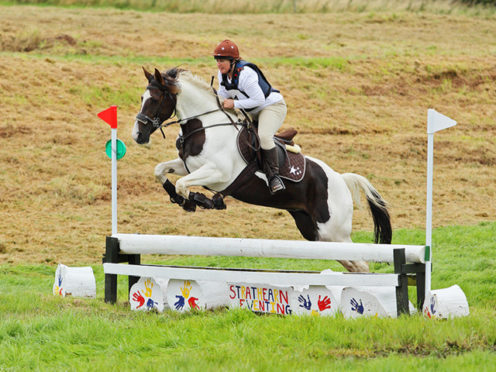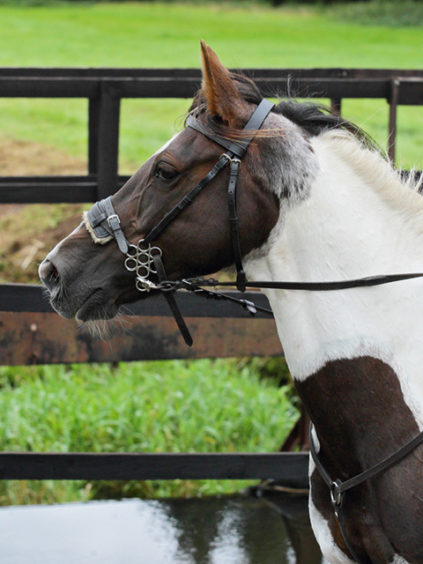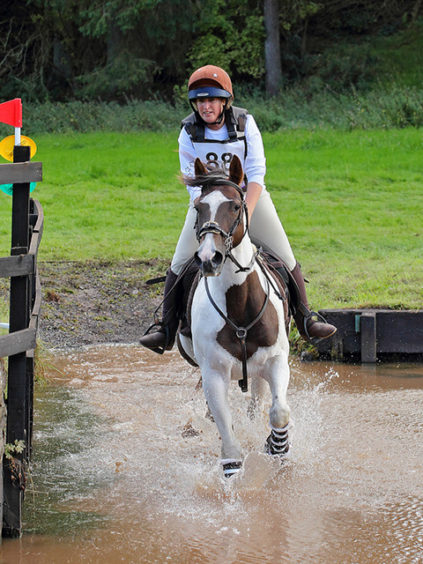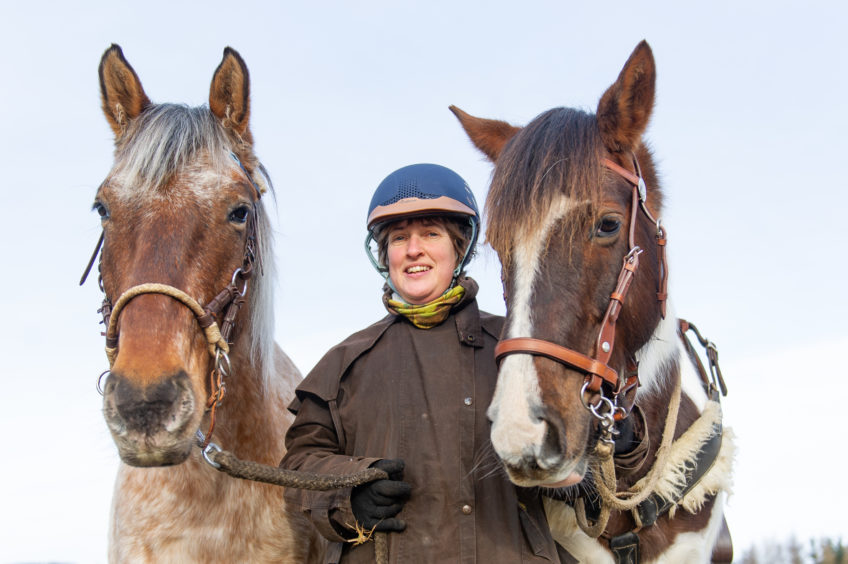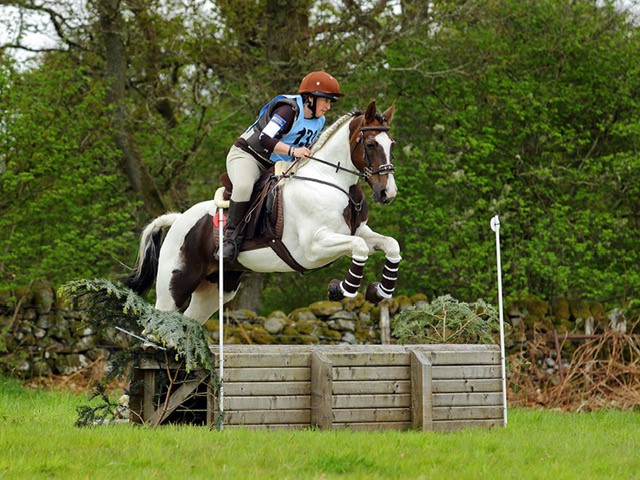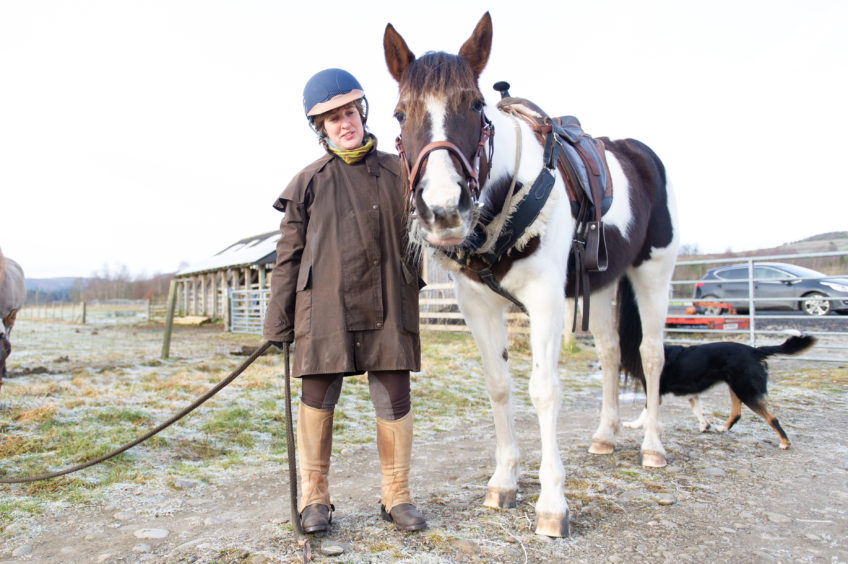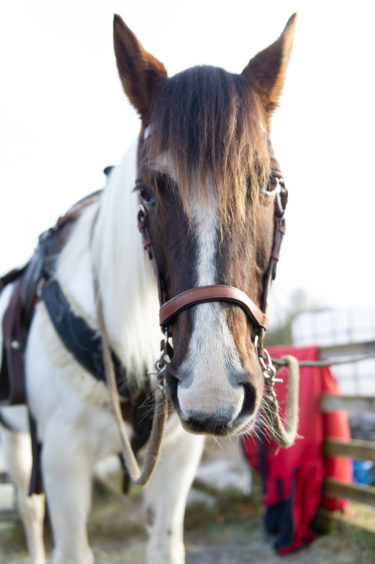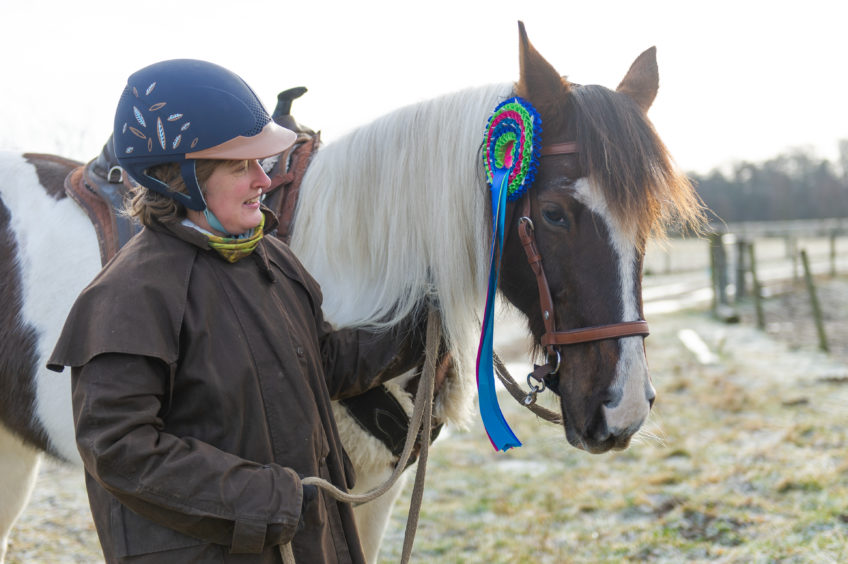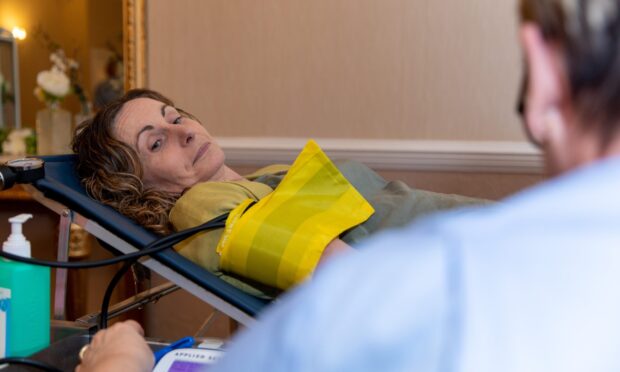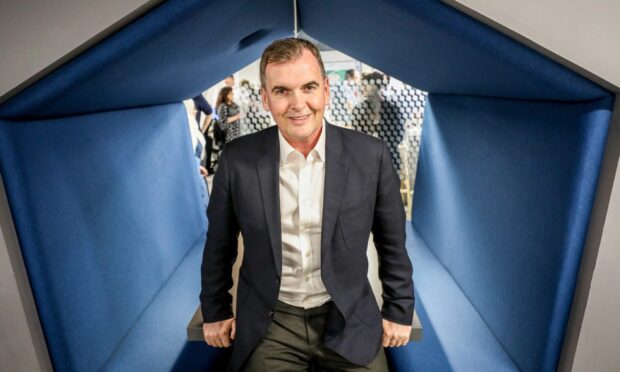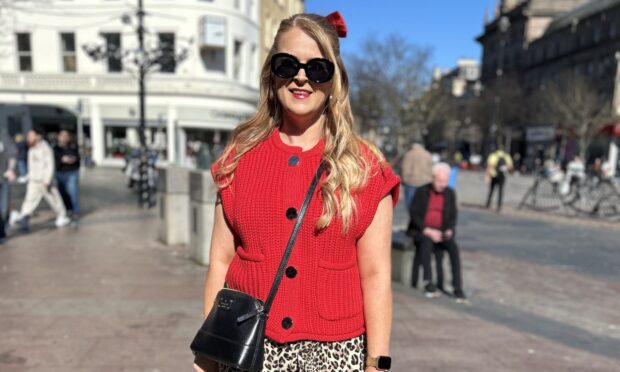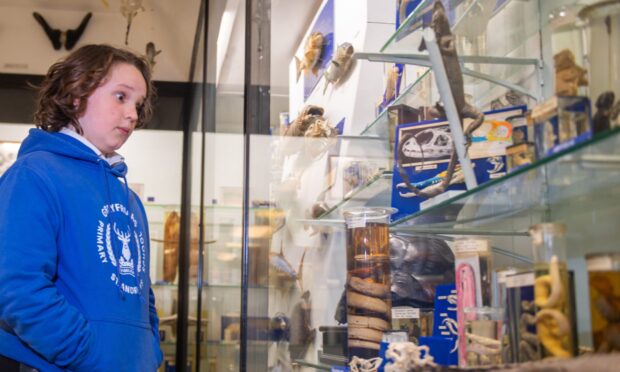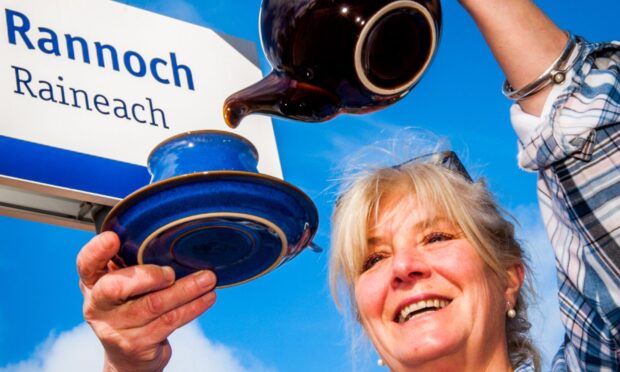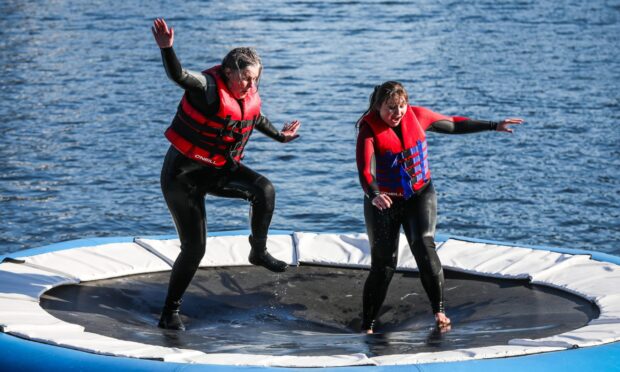Perthshire horse rider Karen Inkster is the first ever World Bitless Champion Ambassador. Gayle Ritchie finds out more…
Cross country, show-jumping, dressing, endurance riding – Karen Inkster has experimented with most forms of equestrianism.
But there’s a major difference between Karen’s style of riding and that of other riders in that she uses a bitless bridle on her horses.
To the uninformed, that may mean very little. But to Karen, 43, it’s a much more humane way of riding.
“Many people use harsh bits and tie horses’ mouths shut with tight nosebands and martingales (sets of straps attached to reins) to control them,” she explains.
“This can cause pain, long-term damage to the mouth and can restrict breathing. That’s why I decided to go bitless.”
Karen, who lives in Caputh, works as a development officer for outdoor access group Scotways.
Every second of her free time is spent hanging out with her deaf collie Pip and two rescue ponies, Standardbred Connie and Spanish Mustang Monty.
In 2017, she completed a mission which saw her, Connie and Pip travel the length of the Outer Hebrides to raise more than £6,000 for Riding for the Disabled and Dogs Trust.
Her endeavours attracted the attention of the World Bitless Association who were so impressed they named Karen the very first World Bitless Champion Ambassador!
The role sees Karen promoting bitless riding globally, culminating in the very first World Bitless Horse Day on September 7.
“I feel so privileged to have won this award,” she says.
“It makes all the hard work, questioning of sanity and even the hospital visits (Karen suffered some bad falls, including one which resulted in traumatic brain injury and being in and out of hospital for a month!) worthwhile.
“Anyone who rides bitless is an ambassador and has their horse’s welfare and comfort at heart.
“I’ll do what I can to promote not only bitless, but barefoot and natural horsemanship.”
Karen believes societies such as The British Horse Society, British Dressage and the FEI (Fédération Équestre Internationale) need to change their rules to allow for bitless competing.
“It’s ridiculous they don’t allow competing without a bit,” she says.
“But I feel that increasingly, people are becoming more aware and looking at alternative, more humane ways of riding.”
One thing Karen commonly hears is that riders fear they won’t have any “brakes” without a bit in their horse’s mouth. But she argues that a horse can bolt even when fitted with the most severe bit.
“It probably takes longer to train a horse without a bit, but it’s much more natural and kinder.
“And if you stop on your hack for a bite to eat, the horse can happily munch some grass without a bar of metal obstructing it!”
It was a book called Riding Free in which author Shuna Mardon competed in endurance riding and cross country without a bridle that first inspired Karen to go bitless.
“I was in awe of her. How could someone have such control and such an amazing relationship and understanding with a horse to be able to do that?
“I initially rode Connie in a simple bitted bridle but soon realised I didn’t have to put a slice of metal into the most sensitive part of a horse to control it.”
Karen hopes to set up a small natural horsemanship/bitless and barefoot business and long term, plans to start a charity to rehabilitate “problem” horses.
She gives talks about her Hebridean trip and wrote a book about her adventure, donating proceeds from both to charities.
info
For more information on the World Bitless Association, see worldbitlessassociation.org
To find out more about Karen’s adventures and to buy her book, see www.facebook.com/thedeafthedaftandtheditsy/
